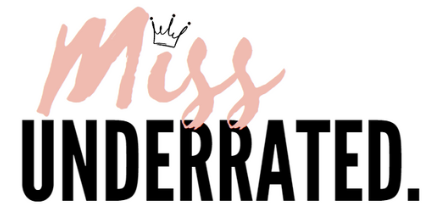I am a chronic procrastinator. Not the “I’ll just push this task to tomorrow” kind. No, I’m the “How did I end up binge-watching Netflix for five hours knowing full well I have things to do from yesterday?” kind.
I’ve learned a lot—and I’m still learning—but one thing I know for sure is this: my future self is absolutely not here for my nonsense.
For as long as I can remember, I’ve hidden behind excuses like “I work best under pressure” or “There’s a method to my madness.” If I had a paper due in two weeks, I’d do the prep work—research the topic, make notes, double-check sources—only to finally start writing two hours before the deadline, hyped up on adrenaline and chaos.
This isn’t just about being a little late or running behind. It’s about the emotional weight of always playing catch-up. That slow-creeping anxiety that sneaks in while you’re “resting,” because you know something’s waiting on you. It’s the mental tax of dodging your own expectations.
You know how people say “treat yourself”? I used to think that meant buying the shoes, splurging on dessert, or planning a spontaneous trip because “I deserve it.” And hey, sometimes that’s true. But I’ve come to realize that real self-care isn’t always glamorous. Sometimes, it’s meal-prepping on a Sunday night. Sometimes, it’s charging your laptop before bed or taking out the trash so you don’t wake up to the smell of regret. The kind of self-love I’m leaning into now looks a lot like responsibility.
And that love starts with honoring my future self.
Our brains make around 35,000 decisions a day, most of which are automatic and based on patterns and common sense—thank God. But for those of us who overthink, overanalyze, or wait until the last possible second to act, the simple decisions—what to wear, what to eat, when to do something—can feel like they’re climbing a mountain in a snowstorm.
So lately, I’ve been reframing the annoying stuff I don’t want to do right now as acts of kindness for the version of me that will exist tomorrow, next week, or next month. Future Me deserves better. Here’s what’s been helping me take care of her.
1. Set Yourself Up for Success the Night Before
This one’s simple but powerful.
When I was younger, my dad made me pick out my outfit the night before school—shoes and all. Ironed and everything. And even though that habit didn’t stick in college, it’s making a comeback.
Now, I lay out my clothes, prep lunch, and pick my snacks before bed. It takes 10 minutes max, but the next morning? I’m already 10 steps ahead. No decision fatigue. No “where’s my left shoe?!” stress. Just a smoother start.
2. Tidy Up for Tomorrow’s Peace of Mind
I used to convince myself that clutter was part of my creative process—as long as it was clean, we were good. But what a difference it makes when I take 5–10 minutes to reset my space.
Decluttering doesn’t need to be a full-on deep clean. Sometimes it’s just clearing up your work space for when you come back to it or building in extra time to clean up your bathroom after you get ready. Coming home to a tidy space is like walking into a hug you set up earlier.
Side Note: Not all clutter is bad—some of it’s just cute. But if you’re constantly moving something out of the way or don’t even remember why you bought it, maybe it’s time to thank it and let it go.
3. Make Tomorrow’s To-Do List, Today
At the end of the day, I jot down a quick list of what needs to happen tomorrow. Nothing fancy, just a few bullet points. If the week looks repetitive, I try to sketch out a basic outline so I’m not starting from zero every morning.
This is especially helpful if your brain takes a while to defrost in the morning. Instead of flailing, you’re already focused. Future You doesn’t have to scramble if there’s a plan to follow.
4. Choose “Done” Over “Perfect”
Perfectionism is just procrastination in a cute outfit.
If you find yourself obsessing over every small detail of something that honestly doesn’t matter in the big picture (like what font to use on your grocery list), pause and ask yourself: Does this impact anything in an important way? Will this matter in five days? Five months?
Often, good enough is more than enough. Going back and forth over the things that don’t even need a second thought, lead to indecision by way of decision paralysis. Remember that making progress is the goal; whether it’s responding to one email or diving back into your journaling or devotions, even a small step forward is still a step forward.
5. Build a Routine (That You Actually Like)
Your routine doesn’t need to be intense—it just needs to work for you. The goal isn’t to restrict you but to support you. Think of it like scaffolding for your day.
That might look like morning journaling, walking after lunch, or designating Sunday afternoons for resets and restocks. These small rhythms can anchor you when life gets hectic. It’s about soft structure and consistency, not control.
6. Be Kind to Yourself, Even When You Slip Up
Listen—life happens. Some days, you’ll forget to prep. Other days, the mess will win. That doesn’t mean you’ve failed.
The goal here is not perfection. It’s showing up for yourself when you can, and offering grace when you can’t. Missing one day doesn’t erase your progress. Beating yourself up only delays your comeback. Compassion is part of the plan.
7. Practice Mindfulness to Stay Present
When you’re too tired to function, Let. Yourself. Rest. When your thoughts are racing or you’re stuck in future stress, pause and breathe. Ground yourself.
Being present isn’t just for yoga. It’s how you reclaim your focus. Mindfulness helps you move from “everything is urgent” mode to “what’s one thing I can do now?” That shift matters.
Wrapping It Up: Show Up for Your Future Self
Taking care of your future self doesn’t require a life overhaul.
At the end of the day, showing up for your future self is about creating habits that make life easier, less stressful, and more fulfilling. It’s about doing the small things, even when you don’t feel like it, because you know they’ll make a difference down the line. You deserve to feel cared for, and that care starts with the little things—the small, consistent acts that make life easier and more peaceful for the version of you that has to live with the consequences (or benefits) of today’s choices. So, what would it look like to treat your future self with the same love and consideration you’d give a close friend? Maybe it’s meal prepping. Maybe it’s clearing your desk. Maybe it’s just deciding to go to bed 30 minutes earlier tonight. Whatever it is, trust that your future self will feel the impact—and thank you for it.

